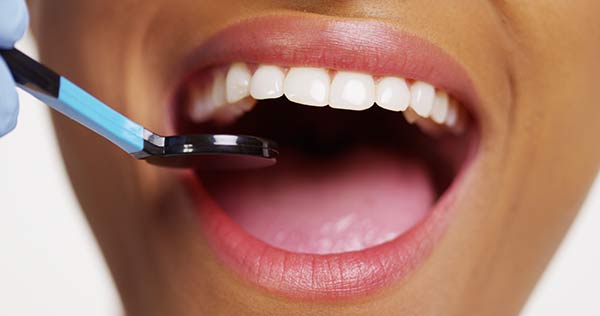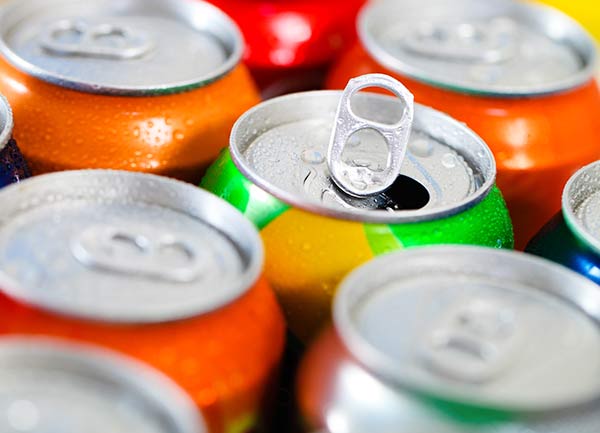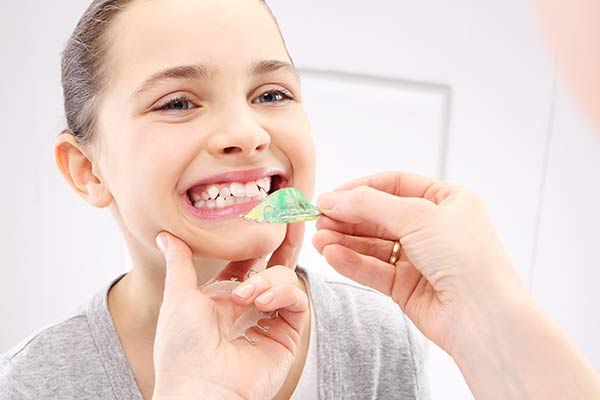
Getting a cavity is never fun. But what do you do when you keep getting cavities and feel like every visit to the dentist means another filling for your mouth? Chances are, the causes behind your cavities are things within your control! Find out the most common reasons that patients keep getting cavities and what you can do to make your next visit to the dentist quick and easy!
Poor Dental Health Habits
The number one reason most people keep getting cavities throughout their lives is simply due to poor dental habits. Cavities form from bacteria wearing away at your teeth. If you aren’t taking care of your teeth, only your saliva will be able to fight back against the bacteria. While it does an admirable job, it can’t compete with the acidic attacks from bacteria hardening into plaque and eventually into tartar.
These are some of the steps you may be skipping that are causing you to keep getting cavities:
Daily Brushing
Brushing your teeth isn’t an option if you want to keep them. Daily brushing is a necessary part of your routine, and it serves to remove bacteria or particles of food from your teeth to protect them. Every time you brush, you’re cleaning away countless collections of bacteria and acidic substances that would otherwise wear through your teeth throughout the day.
No matter how well you brush, bacteria will always return. That’s why you must brush every single day. While missing a day here or there throughout your life won’t make a massive difference, time is what allows bacteria to harden. The longer it has to set into your teeth, the more difficult it is to remove.
Daily Flossing
Brushing and flossing go hand-in-hand. For every bit of bacterium on your open surfaces, there lies more between your teeth. Cavities can form in these gaps between teeth just as easily as on the upper, inner or outer surfaces!
If you aren’t flossing daily, you’re leaving behind bacteria that could be considered even more dangerous for your oral health. Plaque build-up between your teeth is just as harmful as other plaque, but it’s harder to notice until it’s advanced well past the early stages of decay.
Because you don’t bite on these surfaces, or experience much contact at all, you may not realize you have a cavity until you have a dental check-up. Which leads us to one of the most concerning problems with many adults and their dental health habits.
Dental Check-ups
Skipping your regular dental health check-ups is a straight route to disaster! Health concerns associated with cavities and gum disease are much easier for a dentist to identify than you at home. With tools like x-rays and their countless years of education and experience, the trained eye of a dentist is necessary to confirm your good oral health.
If you feel no pain, have no discomfort and see no warning signs in your teeth or gums, you still need to see your dentist. Like the rest of your body, routine examinations and tests are necessary to make sure everything is working properly “under the hood.” It’s surprisingly common for those with even the best brushing and flossing routines to still develop cavities – and they’re often only found during their dental examinations!
Poor Diet
Another common reason that thousands keep getting cavities is due to diet. If you practice perfect brushing and flossing, you may still run into issues with cavities if your diet consists of:
High Sugar Intake

Sugar is one of the worst things you can put in your body. While your body loves it for its easy conversion into energy, it’s bad for your health in more ways than you can count. For dental health, it’s just as popular with bacteria as it is with your taste buds!
Bacteria need fuel just like we do. And sugar is easily converted into fuel for them too! When you eat sugary foods or drink sugary drinks, some of that sugar remains in your mouth. It sticks to your teeth, is trapped in food pockets or up in your gums. When those sugars remain, bacteria have a feast. And when bacteria feast, they leave behind acidic waste that burns through enamel. Your teeth weaken and cavities are formed.
Even worse, when those cavities begin to form, bacteria move inside the new cavities. Cavities may seem small to us, but those little spaces can make it nearly impossible for you to brush or floss! That’s why, when you do have a cavity filled, it’s necessary for your dentist to first clean out the space entirely.
Acidic Foods/Drinks

You don’t need sugar to coat your teeth in damaging acids! Some foods are naturally acidic and will damage your teeth the moment they contact. Acidic foods and drinks come in many shapes and flavors, but some of the most common are citrus fruits and related drinks.
In occasional or small amounts, the acid from these foods isn’t much cause for concern. But if left on your teeth for long periods of time, they can do significant damage on their own. You can avoid cavity risks from acidic foods or drinks by drinking water after consuming them. The water will wash away most of the acidic substances, combined with the passive effects of saliva, your teeth should be just fine.
One thing to note is to avoid brushing immediately before or after eating or drinking acidic foods. When acids wear at your teeth, they become more vulnerable. Brushing, while typically beneficial, can potentially wear enamel down when your teeth in this weakened state. After around 30 to 45 minutes, your teeth should be safe to brush and floss as normal.
Sodas

The last major dietary reason that many people keep getting cavities is the increase in soda consumption worldwide. A favorite of children and adults, sodas of all types are a major concern for dentists working with patients that are susceptible to cavities.
Primarily, sugary sodas introduce staggering amounts of sugar into your diet. Like any source of sugar, this means soda directly feeds bacteria on your teeth and gums, leading to an increase in acidic attacks and allowing bacteria to thrive.
However, soda is also acidic. So, in addition to fueling damage from bacteria, it also directly erodes the protective enamel on your teeth. The combined effect of these two forces is a serious risk to your oral health. Even diet sodas still retain the eroding acidity, so this is true of all types of soda.
If you can’t resist the temptation, dentists can only recommend that you finish your drinks quickly. Sipping at sodas over longer periods of time increases the amount of damage they do. Like citrus drinks, follow up soda with a glass of water and make sure you brush your teeth later that day!
Orthodontic Issues
Orthodontists are dental specialists that help correct alignment and development issues with your jaw, teeth and gums. Many people see orthodontists as helping make your smile look nicer. This misses the key benefit of orthodontics: improved dental health.
In addition to all of the other benefits of orthodontic treatment for those who need it, it can also prevent you from a string of cavities throughout your life! The most common thing an orthodontist can do to help you prevent cavities is fixing crooked teeth!

Even in the ideal mouth, flossing is the only way to reach certain difficult surfaces. If your oral development lead to orthodontic issues, however, you could have even more severe “traps” in your mouth. These traps are locations where teeth overlap or leave major gaps. In either case, it makes it easier for food, sugars and acids to make their way in or harder for you to clean out.
When crooked teeth are corrected, these difficult gaps or overlapping areas are reduced, making it easier for brushing and flossing to keep your teeth cavity free!
Do Genetics Play a Role in Why I Keep Getting Cavities?
There are plenty of articles out there that talk about the roles of genetics when it comes to dental health. There aren’t many direct connections between genetics and your likelihood of developing cavities, but there are some.
While it is true that genetics play a role in dental health, as they do in everything about you, it’s important to remember that perfect dental health is always within your control. Great oral hygiene combined with frequent dentist visits can keep your teeth health for a lifetime!
Here are the two most notable factors we’re aware of today:
Enamel Strength
The core, and only known uncontrollable connection between genetics and cavities is your enamel. The strength of your enamel is slightly unique. For all people, enamel is strong enough to defend your teeth, especially when properly cared for.
However, some people will have enamel that’s easier or harder for acids and bacteria to break through. This means, to a small extent, you may be more likely to get cavities than someone else who has an identical oral hygiene routine and diet.
Predisposition to Sugar
Do you have a friend who just never really cared for chocolate, candy or confectionaries? Genetics play a role in your brain’s predisposition to sweets and sugars. While environment, location and parenting are also key players in this regard, it does mean that some people are more likely to be drawn to eating foods that are more likely to damage their teeth.
Of course, having a sweet tooth doesn’t mean you’re obligated to indulge. Like anything with your diet, you have control over what you eat, how frequently you eat it and how you care for your teeth afterwards.
Do You Need Dental Care? Schedule an Appointment!
Pointe Dental Group can provide you with a complete examination, answer your questions, and discuss your options. Schedule an appointment with us today! New patients can receive FREE comprehensive exam and consultation, plus a full panoramic x-ray with a paid cleaning procedure (a $200 value)!
Grosse Pointe Farms: (313) 881-2480
Shelby Township: (586) 803-8300

Don’t miss a thing! Connect with us on Facebook!